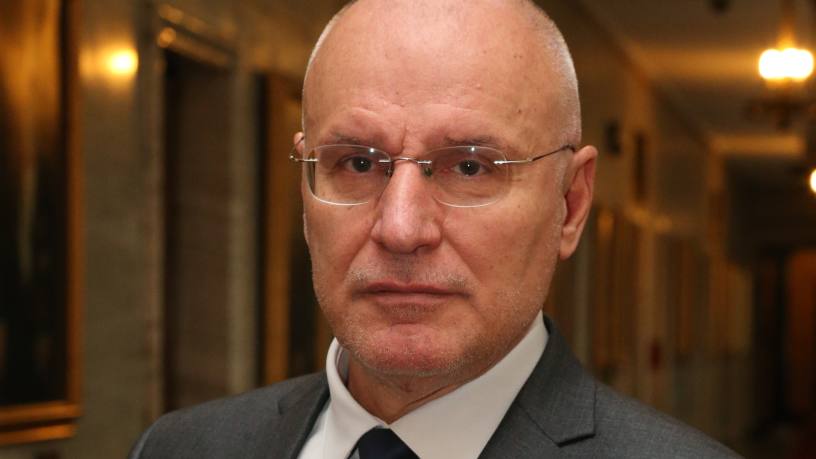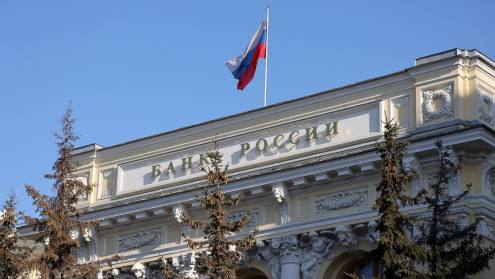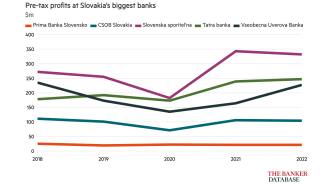Dimitar Radev has served as governor of Bulgarian National Bank (BNB) since 2015, overseeing it through key moments in Bulgaria’s recent past. In 2020, in the face of the pandemic, the central bank adopted a package of measures that exceed 8% of gross domestic product (GDP), aimed at strengthening the resilience of banks in terms of both capital and liquidity.
Q: How tough was 2020 for you and the banking sector?
A: The last year was exceptional for everyone. Facing utterly unknown risks, as policy-makers and regulators we needed to come up with solutions with significant effects for businesses, households and the economy at large.
We felt the full brunt of our enormous responsibility to society. It was the overall sequence of unusual circumstances as the pandemic evolved, rather than a single point in time.
Critical as they have been, our anti-crisis measures fell back on the BNB’s rich experience as macro-prudential authority for the banking sector. Their positive effects on the economy were complemented by the prudent behaviour of the banks themselves, as well as the government’s fiscal and other support measures.
Q: How did the banking sector perform in 2020? Were there any major or unexpected challenges?
A: Our banks entered the pandemic with solid capital and liquidity positions. The BNB measures to boost the resilience of the sector were pre-emptive, aiming to further enhance banks’ loss-absorbing capacity in case the new risks would turn out to materialise.
On the back of notably higher impairment costs, the 2020 profit generated by the sector was about half that of the previous year. Our banks have succeeded in maintaining comfortable levels of capital and liquidity, continuing to provide lending to the economy.
Both the banking sector and supervision in Bulgaria have come a long way and look markedly different today than several years ago
Banks and supervisors alike are gaining knowledge and experience in coping with the unprecedented challenges stemming from the pandemic. As long as the coronavirus stays with us, along with the restrictive measures affecting the economy, we need to keep monitoring the timely recognition of credit risks by the banks. Their prudent provisioning remains our supervisory priority.
One challenge to watch out for in the coming months is the dynamics of banks’ asset quality following the expiration of the temporary moratorium on bank loans repayments.
Q: Bulgaria joined the Exchange Rate Mechanism II (ERM II) in 2020 and is targeting euro adoption in January 2024. Do you think this is a realistic target?
A: It is ambitious, but achievable. There is an immense amount of work to be done in preparation for the euro, but I believe the Bulgarian institutions are strongly motivated and well-equipped to complete all steps and requirements.
The euro adoption has long been a strategic goal for Bulgaria. The closer we get to accomplishing it, the stronger we are going to feel the upsides of being members of the European monetary union.
Even well before the actual changeover to the euro, the very process of moving forward has so far benefited Bulgaria though consolidating our reform efforts, strengthening our policies and enhancing our institutional capacity. This was already demonstrated by the process of joining the ERM II and the EU Banking Union, completed last year, which involved prior requirements to fulfil policy commitments in several key areas.
Q: How has the banking sector developed during your time in office? Are there lingering issues related to the bank runs of 2014, which occurred shortly before you took office?
A: The case of bank runs back in 2014 was an isolated one with no ensuing effects. But the memories of those events, and the policy lessons we tried so hard to learn as a result, have certainly been the driver for deep transformations in recent years.
Both the banking sector and supervision in Bulgaria have come a long way and look markedly different today than several years ago. The sector has undergone consolidation of ownership, and has strengthened through the asset quality reviews and stress tests in 2016 and 2019 — the latter in the run up to joining the Banking Union.
The banking supervision function of the BNB has been completely overhauled in many aspects, ranging from supervisory procedures to decision-making and governance.
Q: When it comes to economic growth for Bulgaria, what challenges still need to be overcome?
A: Our economy performed robustly in recent years, real GDP growing between 3% and 4% annually. The monetary policy regime of the currency board has underpinned the financial and macroeconomic stability in Bulgaria for nearly a quarter of a century. Competitiveness of the economy has kept improving, as reflected in the continuous rise in our exports.
At the same time, there are notable structural challenges to the growth potential of the Bulgarian economy. Institutional deficiencies, adverse demographic trends including ageing, a shrinking labour force, and emerging skills shortages, are among areas of top concern.
The baseline scenario remains that this year should see the turning point in setting up a stable trajectory of economic recovery in Europe, including the Bulgarian economy. One year since the outbreak of the pandemic, however, macroeconomic projections are still veiled by high levels of uncertainty.












